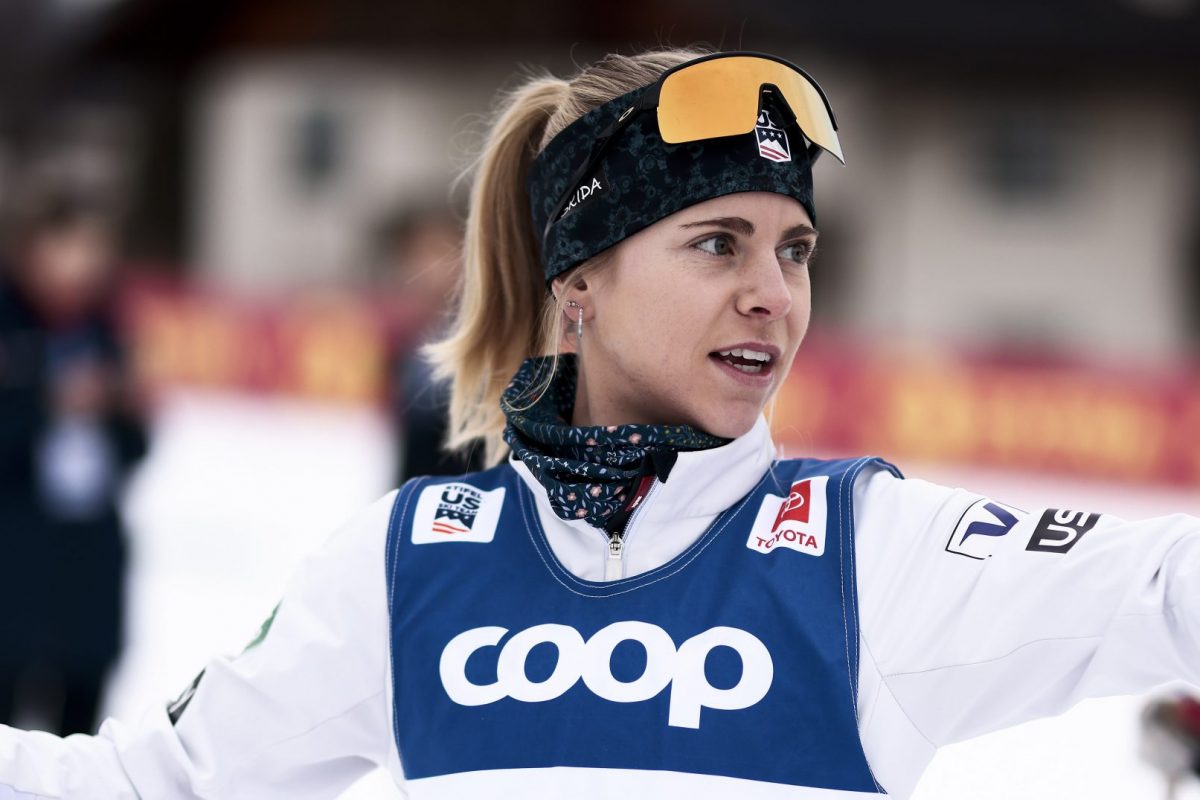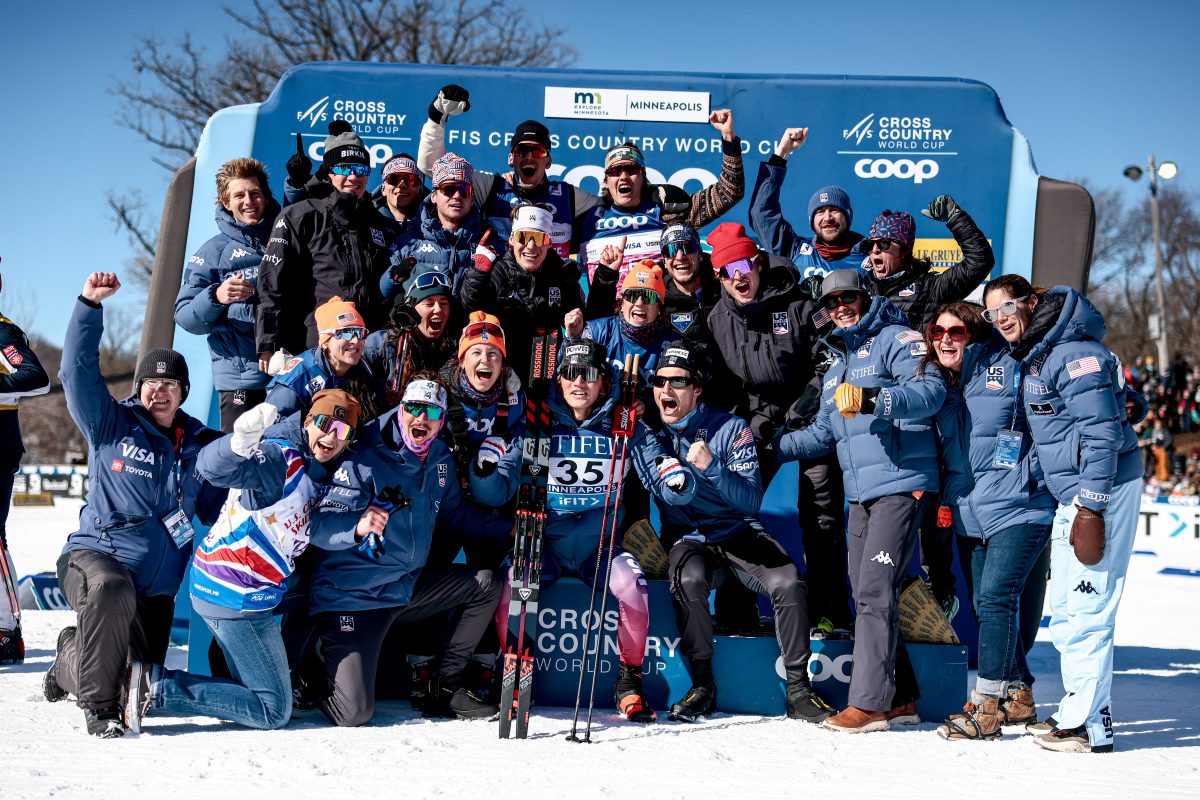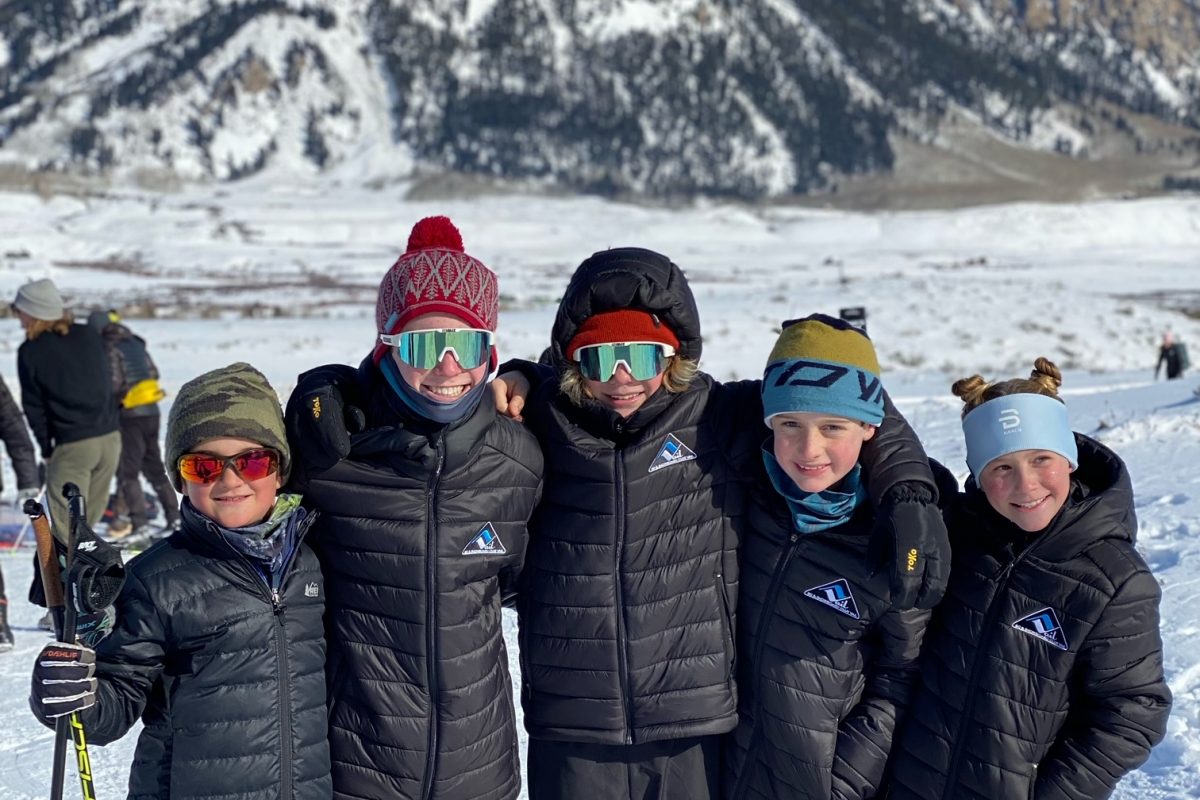
FasterSkier would like to thank Fischer Sport USA, Madshus USA, Concept2, Boulder Nordic Sport, and Swix Sport US for their generous support, which made this coverage possible.
PYEONGCHANG, South Korea — Flashback to pre-Pyeongchang.
In the weeks leading up to the 2017 World Championships in Lahti, Finland, Canadian Len Valjas sustained an injury to his back during a gym workout in Davos. He traveled to Finland, unsure if the incident would prevent him from racing at world champs. Eventually, he started both the men’s individual and team sprint for Canada.
But his back, and subsequently his breathing, never quite fully recovered for the event.
“It totally affects my breathing,” Valjas had said of the injury last year in Lahti. “The race starts well and I die immediately.”
The Canadian continued to work at rehabilitating his back through the spring and summer. In the fall, however, he experienced relapse. For the most part, leading up to that point had been able to work through any discomfort. A tweak in November left him turning to various medical tests and MRIs to see what went wrong. Eventually, the issue boiled down to his thoracic spine.
“[Doctors] found a herniated disk in T2-3 and below that a cracked vertebrae on T-4, which is the rib that is probably affecting my breathing,” Valjas said in January of this season, following the freestyle sprint in Seefeld, Austria.
“It just feels like there is a rubber band around my chest,” Valjas added after the Seefeld sprint. “When it’s flared up and tight it just takes longer to take a deep breath. I honestly can’t go any higher than [Zone] 3 and my body can’t go on any slower breathing.”

In the Seefeld sprint, Valjas ended the day in 40th. After a cooldown, he returned to the team’s hotel and began his two-week training countdown for the Pyeongchang individual classic sprint, one of his main targets at the 2018 Olympic Winter Games.
When the morning of the men’s 1.4-kilometer classic sprint arrived on Tuesday, Valjas was still experiencing pain in his back.
“I woke up and I was having trouble breathing, the rib wasn’t moving well,” Valjas told FasterSkier in PyeongChang on Tuesday.
“The last month leading up to this, I’d train a little bit, push it too far, then have a little setback,” he added.
Then something popped. Literally. After a morning run on Tuesday prior to the qualification rounds, the Canadian took a moment to lay on a foam roller.
“I don’t know what moved, popped, but I just lay there for five minutes, kind of arching my back and I stood up and I could breathe,” Valjas explained. “I try to not lie on my back like that because I could really piss it off — any time you’re lying on something kind of sharp with a broken back, it might not totally help — but it’s the only reason I was able to ski today.”
While his Canadian teammate Alex Harvey did not advance past the qualifying round (finishing the day in 32nd, 0.26 seconds away from qualifying and 9.41 off of the fastest qualification time, which was set by Finland’s Ristomatti Hakola in 3:08.54), Valjas advanced to the heats in 26th (+8.57).
Slotted in the fourth quarterfinal, the pressure was on for the 29-year-old Valjas if he wished to advance to the semifinal, either automatically or as a lucky loser. Italy’s Federico Pellegrino had set a fast pace in Quarterfinal 2 and incidentally, the second heat still held the lucky loser time as Valjas’s quarterfinal lined up at the start.
Already qualified for the semis were the likes of Norway’s Johannes Høsflot Klæbo, Sweden’s Teodor Peterson, Norway’s Pål Golberg, Finland’s Hakola and Russia’s Alexander Bolshunov.
Names to take note of at the start of Valjas’s heat included Norway’s Emil Iversen, Sweden’s Oskar Svensson and Russia’s Alexander Panzhinskiy.
Off the gun, and out of the start tracks, Valjas was squeezed to the inside. Each V-board brought a cringe from the crowd; it appeared as if he nearly nicked each one as the six quarterfinalists made their way into the first climb. As they crested over the top, the looming 6-foot-5 figure of Valjas was last.
Heading into the second climb, the order remained pretty close to the same: Iversen led, while Svensson chased milliseconds behind. Panzhinskiy, Germany’s Sebastien Eisenlauer and Slovakia’s Peter Mlynár comprised the middle. The last suit to crest the quarterfinal’s final climb, Canada.
“On the hill, I wasn’t fastest to the top by any means, I was gapped, but I just made sure to push over the top,” Valjas said. “I knew the techs gave me the fastest skis out there … and I just let the skis roll.”
As the skiers rounded into the descent back toward the stadium, Valjas began to move up. He slungshot around Eisenlauer and Mlynár and with 150-meters to go he was positioned in fourth. As Oskar and Svensson battled for first and second, Valjas and Panzhinskiy fought for third and fourth. The clock was ticking. Current lucky loser time posted at 3:11.95.
In the final lunge to the line, Valjas bested Panzhinskiy by 0.28 seconds to take third in Quarterfinal 4 in a time of 3:10.87. One more heat to go to see if he would retain his coveted lucky loser position.
Hamilton’s Quarterfinal
In the fifth and final heat, it was Finland’s Martti Jylhä, Lauri Vuorinen, Germany’s Thomas Bing, France’s Baptiste Gros, Russia’s Alexey Vitsenko, and American Simi Hamilton.
Hamilton had qualified in 19th (+7.59), and in the fifth quarterfinal, he held a good position heading into the first climb, sitting in fourth. Tag-teaming the front was Jylhä and Gros. As the group descended to corner into the second climb, however, Vuorinen’s skis clipped the back of Hamilton’s. Both the American and the Finn went down, taking out the Russian’s pole in the process.
“Coming out of that corner everyone wants to go left, because that gives you the best line for getting up and over that second climb. So we were all kind of aiming for that lefthand track,” Hamilton said. “I figured that I could at least stay left of the track going into that corner. Then maybe run past people out of the track.

“But it just squeezed way, way, way too tight on the left; we all came together at the wrong time,” he continued. “And I think my skis, my tips got skied over. My skis just kind of stopped dead and my body kept going.”
By the time Hamilton and Vuorinen were able to stand back up again, Gros and Jylhä were cresting the top of the course’s brutal climb. Vitsenko just received a new pole. Jylhä and Gros ultimately finished the quarterfinal in first and second, respectively. Hamilton was the fourth across the line in his heat, ending the day in 20th.
“I’m bummed for sure,” Hamilton said. “But, you know, you got to look forward to the team sprint. I’m psyched about ski racing and psyched about this team. I know we have a lot of momentum, and so just look forward to the next race.”
Onto the Semis
With all five quarterfinals complete, Valjas earned the first lucky loser spot and advanced to Semifinal 2. Similar to his quarter, the Canadian skied toward the back of the pack through the first climb. As they swept through the first descent toward the second course climb, Valjas positioned himself into fourth. Cresting to the final down, Canada was in the mix.
When the group returned to view for the final descent, however, Hakola had taken the lead. Sweden’s Svensson was close behind followed by a small gap and then Valjas. The Canadian pulled hard, but Hakola and Svensson finished 1-2 respectively and claimed the automatic advance spots. The high speed of the first semifinal, which Klæbo won, produced the final’s two lucky losers. Valjas was out, but not without giving spectators in the stands and at home a maple-leaf show. He ended the day in seventh for Canada’s best result in two Olympic cycles.
“Really proud to be chosen to represent Team Canada at my second Olympics!” Valjas posted on Instagram prior to the start of the 2018 Winter Games. “Thank you to my family, friends and supporters. I am so grateful to all the people that have helped me reach this point.”
Bjornsen in the Mix
The third and final North American man to qualify besides Valjas and Hamilton was American Erik Bjornsen, who snagged the last spot in 30th (+9.15). Bjornsen entered Quarterfinal 1, which featured Peterson, France’s Richard Jouve, Kazakhstan’s Alexey Poltoranin, Italy’s Maicol Rastelli and Tuesday’s eventual gold medal winner, Klæbo.

“Whether it was Klaebo or someone else … I am just thinking how I can get to the front,” Bjornsen said.
Bjornsen cornered into the final uphill to the far left, taking the inside track through the climb. As he strode the course’s last grueling up, he indicated his energy “felt great.” However, the opportunity to move to the front as he had hoped eluded him.
“I was feeling pretty comfortable up this first hill and was hoping that I could find a hole out there somewhere, never really came, so had to lay it down the last 100 meters,” Bjornsen said.
The final stretch saw Bjornsen pegged up against Jouve and Poltoranin. In the end, the three-way sprint finish for third — behind Klæbo in first and Peterson in second (+1.14) — went to Jouve (+1.31), followed Poltoranin in fourth (+1.51) and Bjornsen in fifth (+1.63). That put Bjornsen 25th on the day.
“I just don’t have the top speed for that,” Bjornsen said. “I am more of a distance guy, but I mean I am happy to be feeling good and I think that is a good sign for the races to come.”
Two other Americans raced Tuesday’s classic sprint, with Andy Newell finishing outside the top 30 in 37th and Logan Hanneman 42nd. Following Valjas and Harvey’s performances, Jess Cockney finished in 35th, just 0.85 seconds outside of qualification.
“I felt really good, I executed a really good plan,” Cockney said. “Just came up short.”
Also competing in the sprint was Canada’s Russell Kennedy, who finished in 54th. Following the able-bodied Winter Games, Kennedy will attend the Paralympic Winter Games taking place this March in Pyeongchang as a guide for Canada’s legendary Paralympian, Brian McKeever.
“It’s a strategy course,” Kennedy explained on Tuesday of the 1.4 k sprint track. “If you go too hard, you can lose a lot in the second half and for me that is what happened today.”
Men’s cross-country returns on Friday for the Olympic 15 k freestyle event.
Gabby Naranja
Gabby Naranja considers herself a true Mainer, having grown up in the northern most part of the state playing hockey and roofing houses with her five brothers. She graduated from Bates College where she ran cross-country, track, and nordic skied. She spent this past winter in Europe and is currently in Montana enjoying all that the U.S. northwest has to offer.



